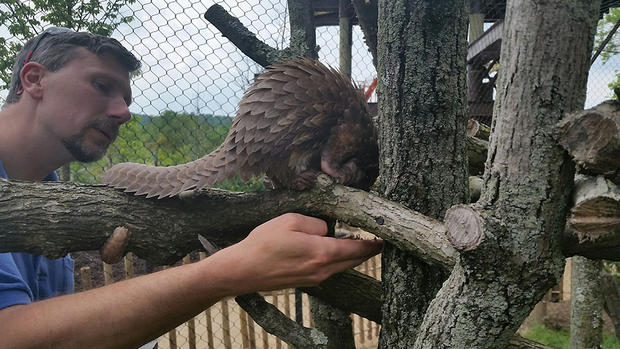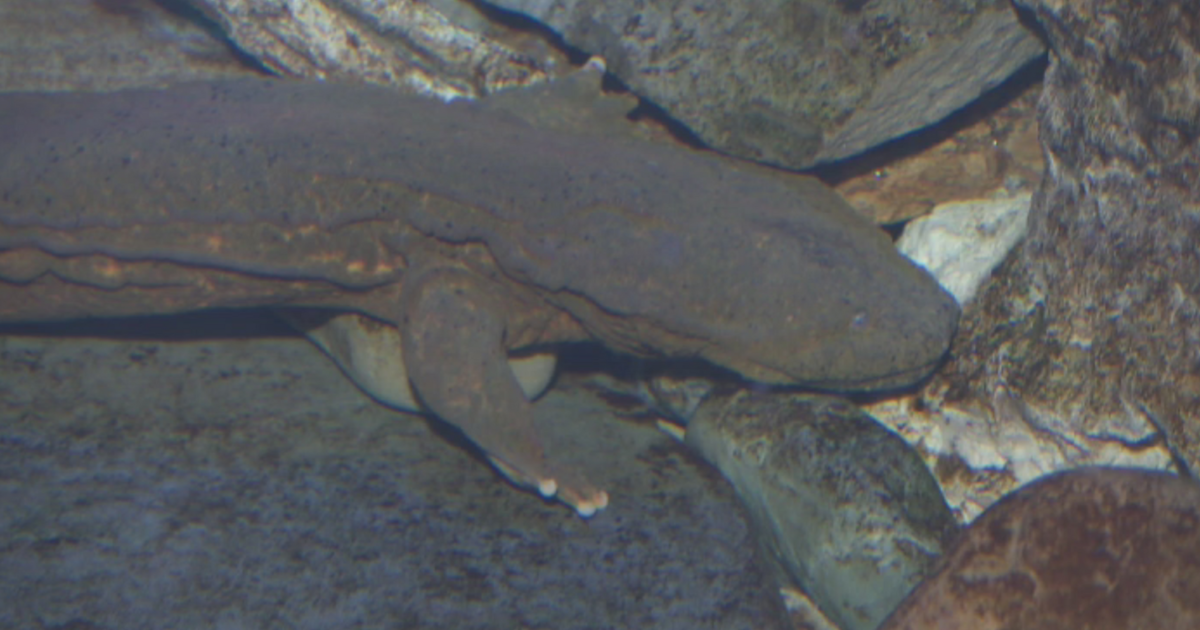Pittsburgh Zoo Joins Effort To Save The Pangolin, A Rare Animal Facing Extinction
PITTSBURGH (KDKA) -- The Pittsburgh Zoo and PPG Aquarium has teamed with several other zoos around the country in an effort to save one of the most endangered species on the planet.
Wild populations of pangolins have nearly been wiped out in Asia and Africa due to poaching. Experts say the situation in Asia has reached a "critical" level.
"Pangolins have been around for approximately 66 million years, to, maybe, up to 80 million years, and that means they've been around since the dinosaurs have been around," said Justin Miller, the director of Pangolin Conservation.
In an effort to help save the rare animals, the Pittsburgh Zoo has welcomed three white-bellied pangolins, two females and one male.
"This is a once-in-a-lifetime opportunity to take care of a species that we know so little about," Ken Kaemmerer, the curator of Mammals at the Pittsburgh Zoo, said. "There's so many things we don't know, and we have this opportunity to join this Consortium to bring these animals out of Africa to care for, to learn about, to research, to set up programs for conservation in the wild and to be able to educate millions people on what these fascinating animals are and why they're endangered and how we can save them."
The zoo hopes to begin a breeding program; however, experts say pangolins have not thrived well in the past in zoos. But researchers are trying to change that with continued study and education.
Kaemmerer says of the three at their facility: "The first milestone for the pangolins was to ensure that they were comfortable within their new environment and eating. Both so far have been accomplished."
The Pittsburgh Zoo says a big step towards saving pangolins is education, and they hope to teach their visitors about "the dire situation facing these distinctive animals in the wild," Kaemmerer said.
The pangolin has very distinctive features. The zoo says they are often referred to as scaly anteaters. They have cone-shaped heads, a long prehensile tails, and bodies that are covered with sharp, artichoke-shaped scales, which are made of keratin. They also have long, muscular tongues used to scoop up ants and termites.
There are eight species of pangolins, four in Asia and four in Africa.
Pangolins can eat up to 20,000 ants and termites in a day, and that adds up to 7.3 million insects in a year.
"These are important animals and if we can save them we can save a whole ecosystem," Kaemmerer said.
However, pangolins are poached for several reasons, including food in the illegal bush meat trade, use in Asian medicines and for their unique scales, which are used to make jewelry.
"There's been an increasing demand in pangolin products for their scales because people falsely believe they have a medical benefit as well as for their meat," Miller said.
Join The Conversation On The KDKA Facebook Page
Stay Up To Date, Follow KDKA On Twitter
The other facilities trying to help save the pangolin are the Brookfield Zoo, Turtleback Zoo, Memphis Zoo, Columbus Zoo, Gladys Porter Zoo, and the not-for-profit group, Zoologica.
They are also working with zoologists and the University of Lomé in Togo on additional pangolin conservation efforts.




